 In the introduction to The Road to the Horizon, you can read how I became a humanitarian aid worker. Pretty much by coincidence (if there is such thing in life), driven by an urge to travel, work with radio (or telecommunications in general) and to work with and for people.
In the introduction to The Road to the Horizon, you can read how I became a humanitarian aid worker. Pretty much by coincidence (if there is such thing in life), driven by an urge to travel, work with radio (or telecommunications in general) and to work with and for people.
Humanitarian work was an excellent opportunity to combine all of those plus-es.. In the beginning, I took the humanitarian aspect as ‘a nice bonus’: while doing the things I loved, I could contribute to the well-being of others.
In the beginning, working as a free lancer, for IFRC, I got to do the real stuff: fly out with a kit to remote locations and install stuff, train people, and feel the direct impact of what I did. The communications and IT equipment I installed contributed to a safer environment for them, allowed them to coordinate their work more efficiently, and get the aid moving faster. I was not paid much. Something like USD1,000 per month plus some local expenses, housing and transport.
Via a temporary job in UNHCR, I got to work for the UN organisation I work in now. Though, when giving up my corporate job in Belgium, I swore never to do a management job again, I gradually went up the ladder again, and before I knew it, I was supervising a team again. First it was small, so I got to do a lot of the physical work myself, but gradually, through the years in Africa, Kosovo and Central Asia, the team grew and I did less of the work myself, concentrating more in the management of a team. I did not have too much of a direct impact anymore in the aid provided, but the people I managed still did. Good enough. In my years managing the Dubai office, it was pretty much the same, though in the end, the team was so large, it required most of my time in the office, and less field work. But I still felt the impact from my personal contribution to the aid provided. As I went up the management ladder reasonably fast, the financial compensation I received went up equally.
While I did not become a humanitarian aid worker, because of the humanitarian work, after years dealing with the misery of others (and sure, I have always been an idealist), I started to find the humanitarian aspect of our work more and more important…
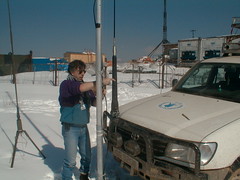 So now, I am working in the headquarters. Now a real challenge starts. I should be a bit careful what I say now. It is in no way meant as criticism of the organisation I work for – I still think we are one of the leanest and the meanest of all humanitarian organisations. But it is a conscience problem I have at the moment:
So now, I am working in the headquarters. Now a real challenge starts. I should be a bit careful what I say now. It is in no way meant as criticism of the organisation I work for – I still think we are one of the leanest and the meanest of all humanitarian organisations. But it is a conscience problem I have at the moment:
Here I am, working in Rome. As you have seen in previous posts, it is not a real hardship duty station (compared to those colleagues working in the remote places like I described in these posts) AT ALL. It is a comfortable life. As comfortable as working for a corporation or a multinational commercial company. The work I do now is so far away from the real field aid work. It is difficult to feel the real impact. “Will an emergency operation really go better if I would stop doing what I do?” No it won’t. “Will aid stop being delivered if I stop my job tomorrow?” No it won’t… I am doing work that facilitates the work of a group of people, who facilitate work for those doing the real aid work in the field. That is at least two levels away from my work.
On top of that, working in a headquarters is different. I used to work in offices of 20 to 50 people. We have something like 800 working here. There is something to be said about the challenges trying to make a difference within this big mass of people. A big mass of people, all working far away from the aid-reality. A big mass of people automatically includes work being done slower. Big machines turn slower. And it is so easy to hide within a mass of people, and not perform at your utmost best. One bad performer in an office of 20 or 50 people stands out. One lazy guy in a mass of 800 does not. So we have a big mass, far away from the real work we are meant to be doing. We are providing aid, while sitting in a comfortable, air conditioned office, in Rome… Solving the problems of world hunger…
OK.. I can still keep my own conscience clean by saying “hey, I worked so long in the field, and am reputed for the work I did in the field that destiny brought me here to bring that experience, that ‘spang’ to the ‘masses’ here in a headquarters.” But it certainly is a challenge to make this difference, tell you that.
All of that, is still OK to tackle. But then I look at my pay cheque. And think how many children we could feed with that money. My pay cheque allows me to lead a very comfortable life. But is it still in balance with the real work I do, with the real impact I have on the aid we deliver? Is it still in balance of what an aid worker should earn? Should wages of aid workers not be more basic, emphasizing raised (aid) funds to go to the (aid) operations themselves? You see my conscience struggle?
Sure enough, by paying a competitive wage, the agency attracts high quality professionals. (“Pay peanuts and you only get monkeys”). I am proud to be good at what I am doing. And the work we do, often goes with personal sacrifices.. In my case, I live away from my family for most of the year. Not easy. In the work we do, we can be reassigned to a new emergency at a moment’s notice. Not always easy. And we can be repeatedly moved from one emergency to another. Sure. And in with large corporations, director positions like I have, probably are paid more. But still, I am not a corporate executive. I am an aid worker. Are we not going a bit over the top? Am I, as an aidworker not being paid too much? Are we, as aid workers not being paid too much?
Read the full post...
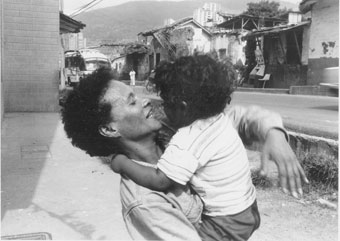 The Internally Displacement Monitoring Center published a number of life stories from Columbian IDPs.
The Internally Displacement Monitoring Center published a number of life stories from Columbian IDPs.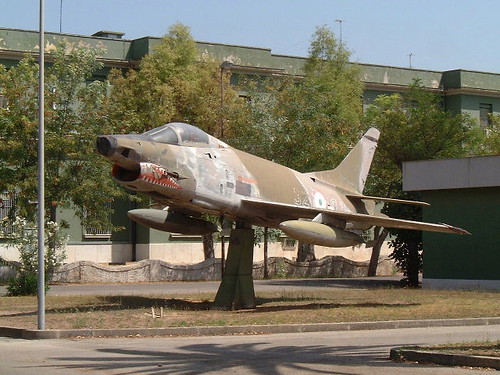
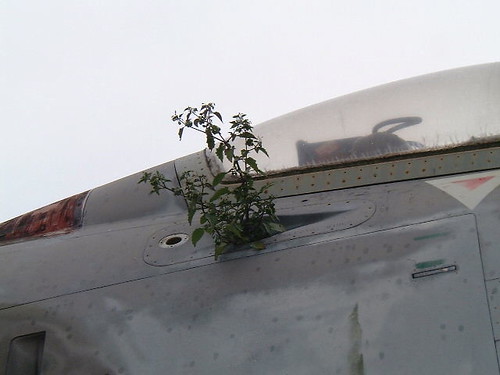

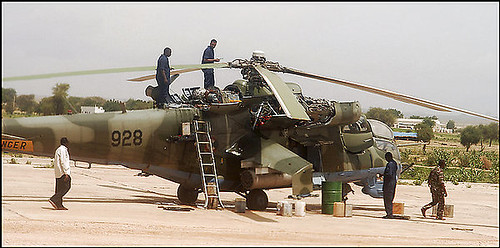
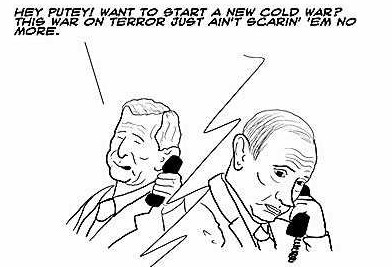
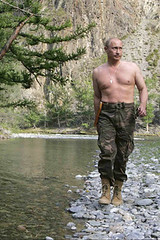
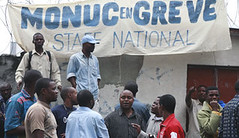


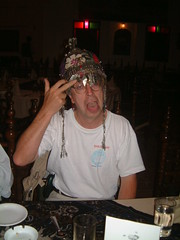
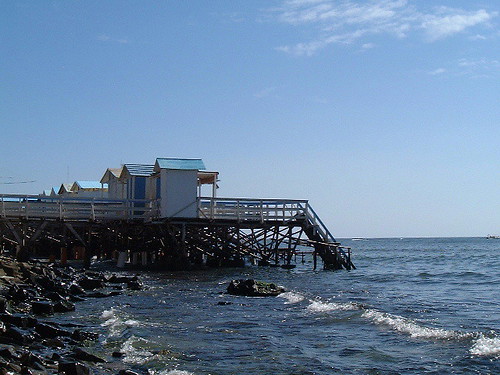
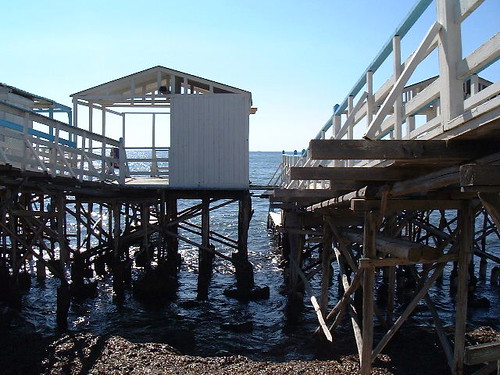
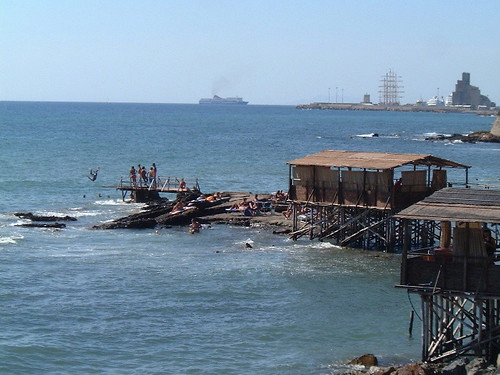




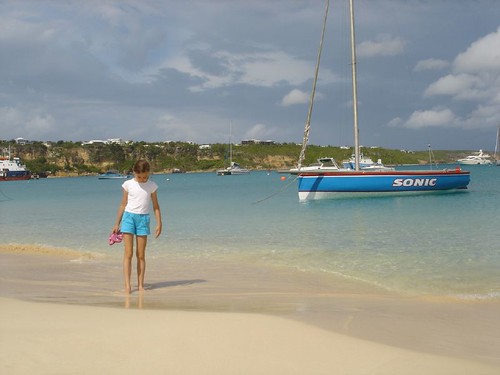
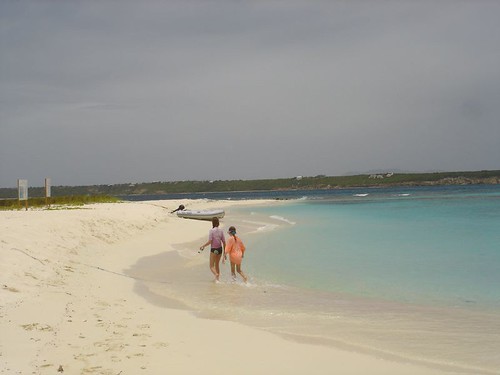
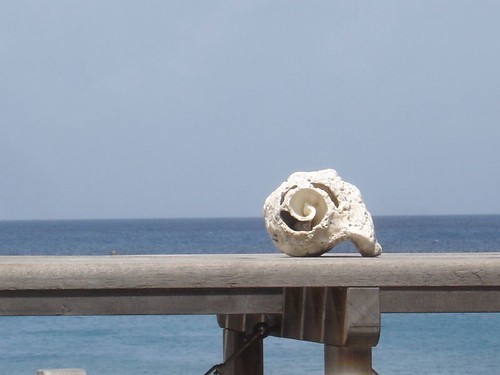
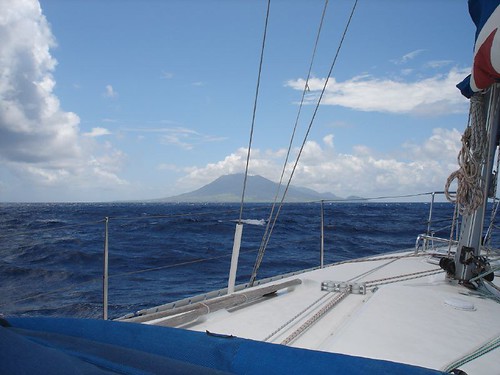
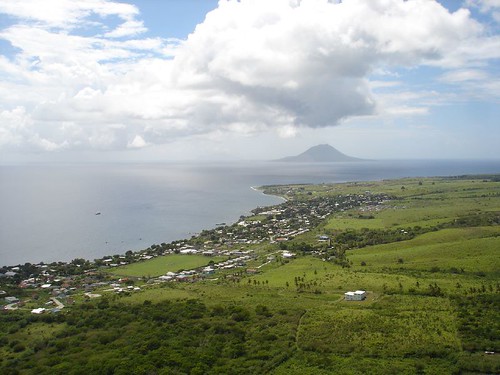 Back to St.Kitts: Volcanic, so not much in terms of white beaches, but loads and loads of fertile land, so the island is very dense green, with forest and sugarcane. The government owned and controlled all the sugarcane plantations, until 1995, when it was determined market prices would never make sugarcane profitable (again). Since then, the sugarcane has not been harvested, and grows wild amongst dozens of plantation ruins, which make very interesting sights by themselves. Gradually pieces of land are donated to residents for agriculture, but as we drove around the island, still, on most of the "cultivated" land, you see sugarcane. Ten year old sugarcane.
Back to St.Kitts: Volcanic, so not much in terms of white beaches, but loads and loads of fertile land, so the island is very dense green, with forest and sugarcane. The government owned and controlled all the sugarcane plantations, until 1995, when it was determined market prices would never make sugarcane profitable (again). Since then, the sugarcane has not been harvested, and grows wild amongst dozens of plantation ruins, which make very interesting sights by themselves. Gradually pieces of land are donated to residents for agriculture, but as we drove around the island, still, on most of the "cultivated" land, you see sugarcane. Ten year old sugarcane.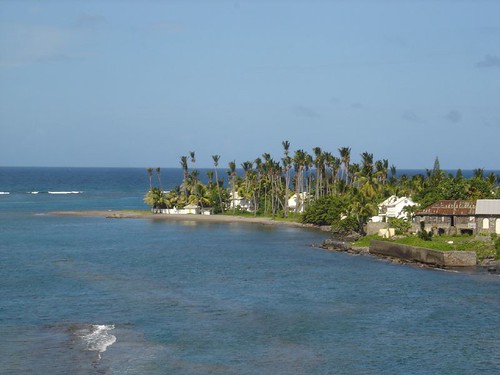 It is a lovely island. Rather poor, but clean, well maintained. A bit of tourism with a few massive (American) resorts (Four Seasons and Marriott, if I remember well), and cruise ship facilities. But tourism is still being developed. The towns still have much of their former shapes and houses, and not too much of the modern malls and cheap mass tourism facilities have creeped in.
It is a lovely island. Rather poor, but clean, well maintained. A bit of tourism with a few massive (American) resorts (Four Seasons and Marriott, if I remember well), and cruise ship facilities. But tourism is still being developed. The towns still have much of their former shapes and houses, and not too much of the modern malls and cheap mass tourism facilities have creeped in. 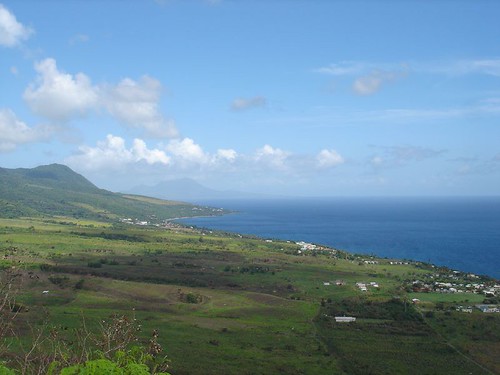 Oh, there is a well known fish restaurant on the outskirts of Basseterre, the capital, called the Fishman's Warf. To be avoided. The lemon daiquiris were terrible, the fish was grilled dry, and the crab was simply off. The latter smelled like pure ammonium. When I returned it to the kitchen, even the cook could not stand smelling it for more than a few seconds...
Oh, there is a well known fish restaurant on the outskirts of Basseterre, the capital, called the Fishman's Warf. To be avoided. The lemon daiquiris were terrible, the fish was grilled dry, and the crab was simply off. The latter smelled like pure ammonium. When I returned it to the kitchen, even the cook could not stand smelling it for more than a few seconds...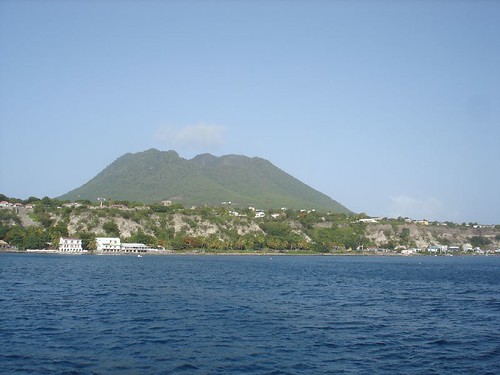
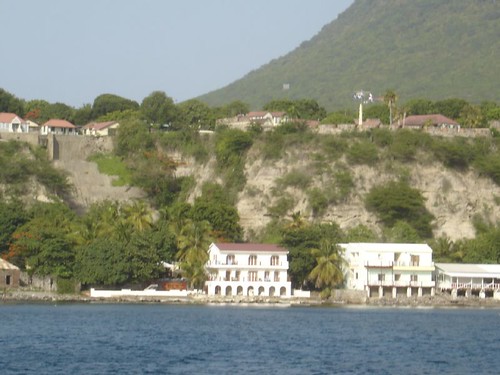
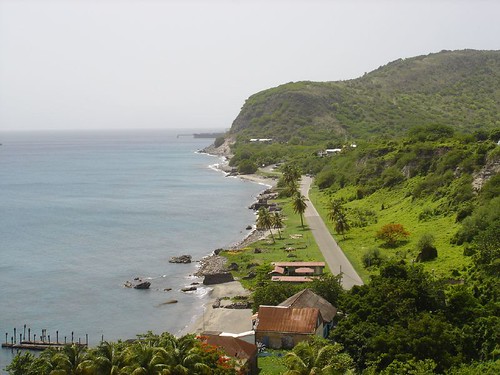
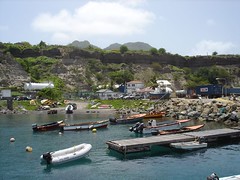
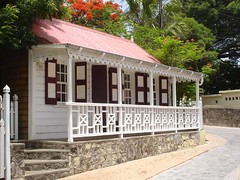

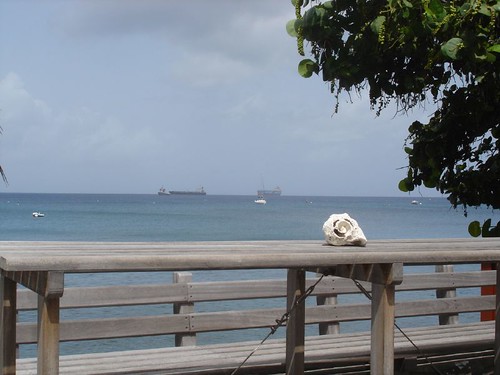


 Once more, we enjoyed the views and the beaches. The girls gave kayaking a try, while Tine and I thought the sunchairs were just fine... :-)
Once more, we enjoyed the views and the beaches. The girls gave kayaking a try, while Tine and I thought the sunchairs were just fine... :-)
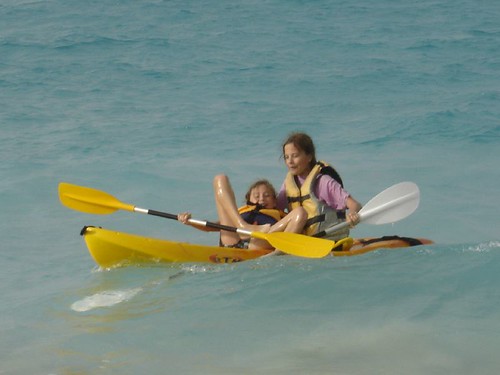
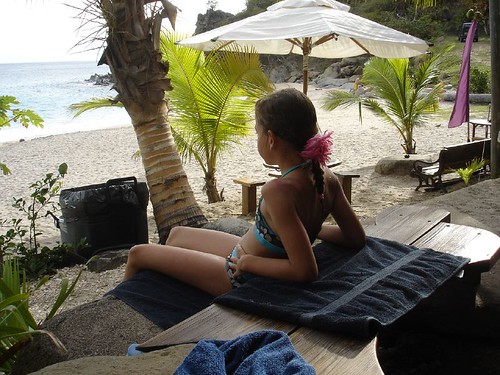

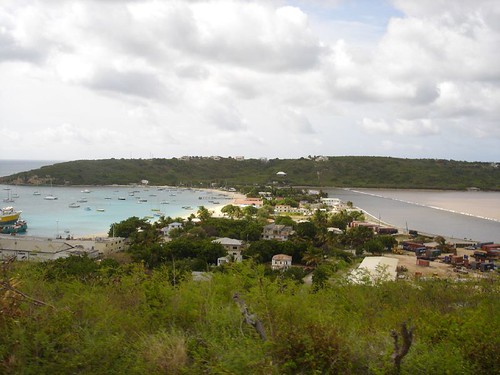 It was a lovely anchorage, with locals racing their boats on weekends. The beach was clean, for a main port that is, and offered lovely sunsets.
It was a lovely anchorage, with locals racing their boats on weekends. The beach was clean, for a main port that is, and offered lovely sunsets.


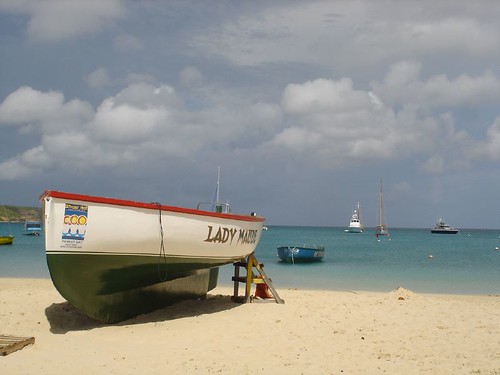 There were only a few boats in the main port, typical for Anguilla, which seems to be off the beaten track for most tourists. I can not imagine why. The beaches were amongst the most beautiful we had ever seen in the Caribbean.
There were only a few boats in the main port, typical for Anguilla, which seems to be off the beaten track for most tourists. I can not imagine why. The beaches were amongst the most beautiful we had ever seen in the Caribbean.
 We drove around the island for a day, to get a taste of the atmosphere. People were laid back and friendly. A really enjoyable island, without the mass tourism of St.Martin.
We drove around the island for a day, to get a taste of the atmosphere. People were laid back and friendly. A really enjoyable island, without the mass tourism of St.Martin.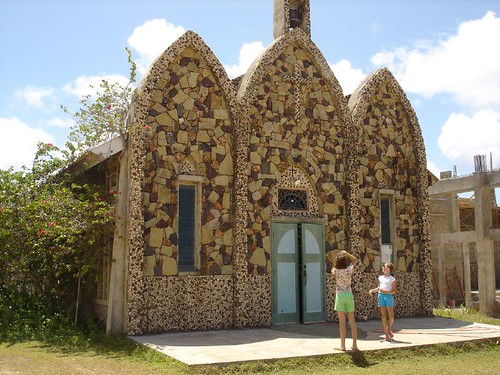 We did two trips with the boat: to Sandy Island (you can see our boat anchored in a distance) and to the cliffs in Little Bay, which made good snorkeling.
We did two trips with the boat: to Sandy Island (you can see our boat anchored in a distance) and to the cliffs in Little Bay, which made good snorkeling. 
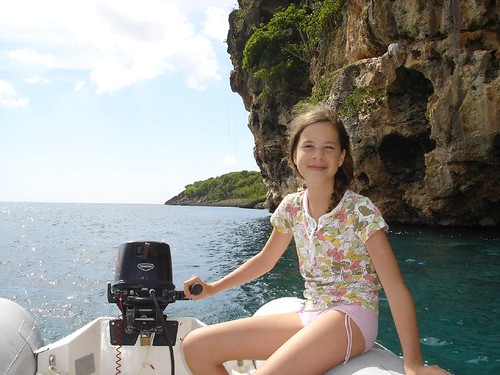 The weather was nice, about 27 dgr C in the shade. The water was 29 dgrs C. It was hard to imagine that just 10 days before, we were sailing in Belgium, in foul weather gear (see
The weather was nice, about 27 dgr C in the shade. The water was 29 dgrs C. It was hard to imagine that just 10 days before, we were sailing in Belgium, in foul weather gear (see 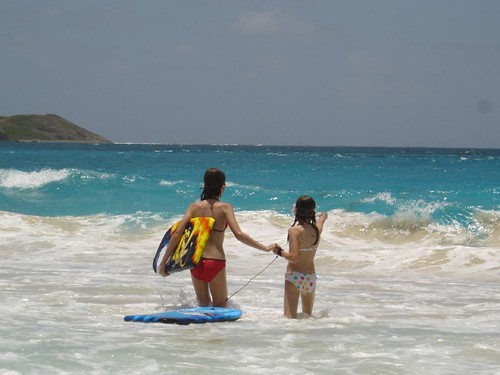 Much to our surprise, while the flowers and trees were blooming, the grass was brown. "It had hardly rained the last month", the gardener said.
Much to our surprise, while the flowers and trees were blooming, the grass was brown. "It had hardly rained the last month", the gardener said.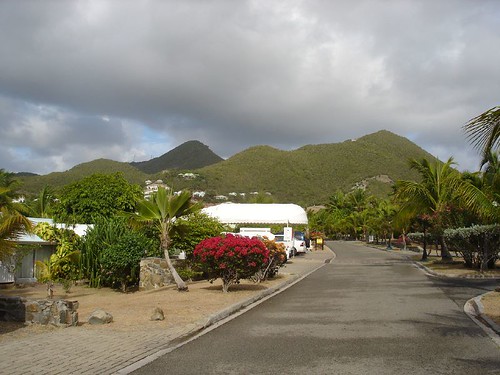 The hotel was well taken care off, with friendly staff, unlike most of the rest of the island, certainly the Dutch side. Once you go off the beaten track, you could see a lot of poverty, loads of dirt and scrap everywhere. A pity they did not take care of the island. It reminded us a bit of Oahu in Hawaii, once you get out of Waikiki... And people were not particularly warm or friendly neither, no matter how hard we tried. Probably "tourist fatigue".
The hotel was well taken care off, with friendly staff, unlike most of the rest of the island, certainly the Dutch side. Once you go off the beaten track, you could see a lot of poverty, loads of dirt and scrap everywhere. A pity they did not take care of the island. It reminded us a bit of Oahu in Hawaii, once you get out of Waikiki... And people were not particularly warm or friendly neither, no matter how hard we tried. Probably "tourist fatigue".
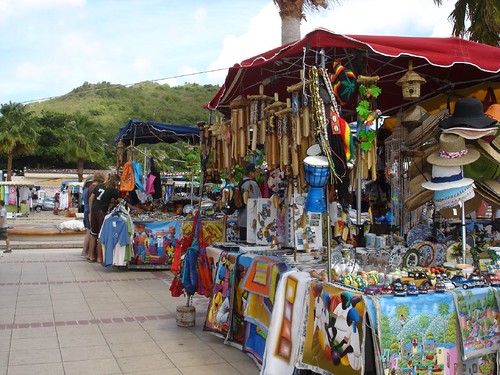
 Peter. Flemish, European, aid worker, expeditioner, sailor, traveller, husband, father, friend, nutcase. Not necessarily in that order.
Peter. Flemish, European, aid worker, expeditioner, sailor, traveller, husband, father, friend, nutcase. Not necessarily in that order.
The Road's Dashboard
Log in
New
Edit
Customize
Dashboard